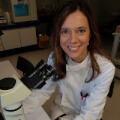Optimizing iPSC therapies: strategies for safe, cost-effective, and scalable manufacturing

Induced pluripotent stem cells (iPSCs) are revolutionizing regenerative medicine, but challenges in cost, scalability, and assessing safety remain key barriers to commercialization. This webinar will provide insights into optimizing iPSC manufacturing through platform-based strategies that reduce costs, shorten timelines, and streamline the path from development to market—all while balancing regulatory compliance with innovation to accelerate clinical translation.
Attendees will gain actionable strategies to navigate the complexities of iPSC manufacturing, safety assessment, and the evolving regulatory landscape, ensuring a robust pipeline for delivering iPSC-based therapies to patients.
We will also explore cutting-edge approaches for assessing iPSC safety, specifically mutation profiling, without over-restricting product viability. Experts will share strategies for leveraging closed automated systems and assessing mutational burden to mitigate risks while expediting clinical development.
- Gain strategies for developing scalable, closed, and automated processing to streamline iPSC therapy development, lowering costs and reducing timelines for commercialization
- Learn the best practices for assessing iPSC safety, including tumorigenicity profiling and risk assessment
- Discover insights into selecting appropriate genomic integrity assays to ensure product safety and mitigate manufacturing risks
- Compare global regulatory and quality expectations for PSC line development from the US FDA, EU regulators, and the rest of the world
You might also like

Advancing AAV manufacturing: strategic insights and cost-effective solutions for the future of gene therapies

Achieving high-quality, efficient mRNA synthesis for streamlined and cost-effective manufacturing

Strategies for streamlined manufacturing and analytics in CGT development







